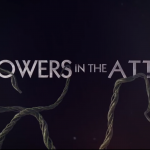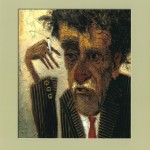Each week in Eat Your Vegetables, Jonathan Sircy shares the benefit and appeal of some of the culture’s more inaccessible or intimidating artifacts.
Cultural Vegetable of the Week: Thomas Pynchon’s The Crying of Lot 49 (1966)
Vegetable Equivalent: An onion, mostly because it is multi-layered, but also because it might make you cry (but only from laughter)
Nutritional Value: Witnessing the birth, development, and decay of an obsession
Recommended Serving Size: As much as you can in as little time as you can, so as to mimic the breathless search at the novel’s heart
I have an obsessive relationship with knowledge. Once something is stuck in my craw, I pick at it with every sharp, pointy object I can get my hands on. Ten bloody hours later, I’ve extricated the offending mote, but at what cost? The search is often captivating, but it’s never clean.
This novel accurately captures that thrill and deflation. In fact, it encourages obsession. It’s short, so you can read it quickly. In content, it’s a kind of mystery novel, so you are tempted to figure out the puzzle that leaves the novel’s central character flummoxed.
The novel’s central character is Oedipa Maas, Californian housewife, and if the name doesn’t strike you as unnecessarily strange, then perhaps a list of the novel’s other dramatis personae and their corresponding occupations will: Wendell “Mucho” Maas (radio disc jockey), Dr. Hilarius (German psychotherapist), Mike Fallopian (advocate for the Peter Pinguid Society, an extremist group that finds the Birch Society too leftist), Ghengis Cohen (a prominent LA philatelist), and Randolph Dribbette (theater actor and director with a penchant for obscure Jacobean revenge tragedies). These and more are crammed into 180 pages, with plenty of room to spare for jokes about pop culture staples like Perry Mason and the classic radio program The Shadow as well as vocations like “used car salesman” and “psychiatrist.”
Because this novel is about the search for knowledge — whether it be of the self or the world — the names and details listed above are temptations for the reader to mimic the novel’s plot. The novel is about nothing if not about “plot,” with an equal emphasis on that word’s two meanings: 1) a story’s action and 2) conspiracy.
A brief attempt, then. Pierce Inverarity (yes, that’s his name) is dead. There is no doubt whatsoever about that. Oedipa Maas, Pierce’s former lover and current wife of KCUF radio DJ “Mucho” Maas, finds herself appointed co-executrix of Pierce’s will. While attempting said execution, Oedipa stumbles upon a mysterious organization known as Tristero and its chief manifestation: an underground postal system. Suddenly, she detects the system’s icon — a muted post horn — everywhere she looks. She follows the system’s trail from a performance of a Jacobean revenge play to a gay bar in San Francisco, from the bed of dying man who wants Oedipa to send a letter that bears the underground mail system’s stamp to the back porch of the English professor who edited the Jacobean play that started Oedipa’s journey. The novel begins with Oedipa learning of Pierce’s death and ends with the auction of Pierce’s estate. The novel’s title refers to the lot number assigned to Pierce Inverarity’s stamp collection. A philatelist’s dream, the collection contains several examples of Tristerean postage.
Oedipa has uncovered an alternative America. Beneath the veneer of mass culture (the novel’s ubiquitous television shows, rock songs, and movie clips), there lies a seemingly disparate but interconnected world of business, art, and scholarship. Like her classical namesake Oedipus, Oedipa searches for the truth. When someone finally says what she’s been afraid to admit — that the entire Tristero thing might be Pierce’s practical joke or a skein of unrelated oddities — Oedipa collapses under the weight of all the evidence she’s accumulated. We do too. The novel evokes the illuminating, exasperating, and (yes, even) boring moments of an honest to goodness search, one that is both intellectual and religious. Fittingly, we see her on the threshold of belief and in the throes of crippling doubt.
Oedipa never overtly interprets what’s happened to her. She tells her story but tries to leave its meaning implicit or simply absent. I won’t. The novel demonstrates how tempting the search for knowledge can be and how such a quest is inextricably bound up with our own mortality.











